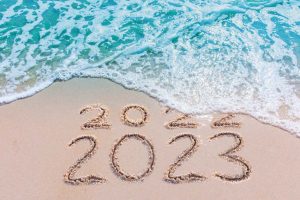You don’t count. You aren’t “regular” black.

See, that is where it started. I went to schools where my brother and I were the entire black population at times, and my white friends – who had met my parents – decided that I wasn’t black. I wasn’t “regular” black because my parents were from another country. That is how they justified the differences between me and other black people that their parents wouldn’t dare have in their homes. I didn’t “sound” black, my parents were foreigners, so to the kids in my school – some of them anyway – I didn’t count as black.
Living in the south, I rarely had contact with Caribbean people outside of my family, and trips to Carnival celebrations in America. When I moved to the DC area, I was with family again. When I branched out on my own, my identity again came into question.

Here’s how the conversation usually goes:
Them: Where are you from?
Me: My parents are from Trinidad and Tobago.
Them: Ohhhhh… so you BORN HERE?
Me: Yes.
Them: Mmmmm Hmmmm. Do you visit?
Me: I haven’t been there in 20 years.
Them: Mmmmm Hmmmm.
And that’s where the interrogation begins. So YOU are SocaMom, and you were born here? Really? Then I am expected to prove how much I know about the food I grew up eating, the music I grew up listening to, my mom’s hometown, my parent’s high schools, down to the street they lived on and the neighborhood crew my uncle beat pan with. It is like I have to prove my island cred (giggling at my own random gang reference).
Some people are just WAITING for me to say, “I don’t know,” so they can blast me for claiming affiliation nation I know nothing about. Truth is, I only know about how MY family does things, and where WE are from. No matter what anyone says, I count. I am an Afro-Caribbean American… yep – that is the set I am claiming (another gang reference that makes me laugh at how hard core I am… not.).

The Caribbean and Latin America cleaned up on medals at the London Olympic games.
Brazil: 3 gold, 5 silver, 9 bronze
Dominican Republic: 1 gold, 1 silver
Trinidad and Tobago: 1 gold, 3 silver
Bahamas: 1 gold
Grenada: 1 gold
Venezuela: 1 gold
Puerto Rico: 1 silver, 1 bronze
I cheered for America – I cheered for the Caribbean. Funny thing is – people like me – born in the US or Canada with parents (and sometimes grandparents) born in the Caribbean, competed for their “home countries” in the Olympics.
Marlena Wesh: born in Virginia, competed for Haiti
Samyr Laine: born in New York, competed for Haiti
Moise Joseph: born in Florida, competed for Haiti
Karin O’Reilly Clash: born in Costa Rica, competed for Antigua and Barbuda
Derrick Atkins: born in Jamaica, competed for the Bahamas
Tolga Akcayli: born in England, competed for St. Vincent and the Grenadines
Wayne Davis: born in North Carolina, competed for Trinidad and Tobago
Jarron Solomon (bronze in 4 x 100): born in New Mexico, competed for Trinidad and Tobago
Carlos Suarez: born in Ohio, competed for Trinidad and Tobago
Samantha Albert, born in Canada, competed for Jamaica
I wonder if those people who turn their noses up at US born people of Caribbean descent cheered less for those Caribbean American athletes. Probably not. For many children growing up in America, being reared by Caribbean and Latino parents, when you get home, it is like stepping back onto the soil of your “home country.” Parents are quick to tell their kids that they can’t behave like their American counterparts. Many kids who never set foot in the countries where their parents grew up (this is true of many immigrant families) speak the language, eat the food, and practice the customs of their parents and sometimes grandparents’ countries.
Patois speaking Harvard law school graduate – and former roommate of Facebook creator Mark Zuckerberg, Samyr Lane, was 26 when he went to Haiti for the first time – a country that he represented in the 2012 Olympics in London.
“I would say it was more like a Haitian raised in the U.S., rather than an American choosing to compete with Haiti… After the earthquake happened, and at 26 years old, there’s not much my mother could do… As a Haitian-American, the culture has always been near and dear to me…I’ve had moments of wavering commitment, but they’ve been few and far between… There have been opportunities that were hard to pass up, but those will be there in the future. Right now, I have an incredible opportunity to do what I love while being able to talk about Haiti and Haitian athletics. It’s all just to inspire.” – Samyr Laine
7 Haitian born Olympians died in the recent earthquake. The Olympic committee in Haiti was unable to provide him any significant financial support.
You would think that these models of immigrant success would want to identify with the country that allows them to reach their full potential. In our home countries, many Caribbean people would never be able to reach the level of education and success that we have been able to achieve in America. Truth is, the values and culture of our countries of origin have an immeasurable impact on the success we have here in the states.
I think it is a matter of national pride. Some people think it is a cop out.
The US regularly leads the race for medals in the Olympics. It is complicated. If you check the backgrounds of the athletes competing, just because of the nature of the American population, many have parents and grandparents from other nations. Is that why America is at the top of the leader board? Is it because we have some of the best athletic training facilities in the world, both public and private?
The Olympic Charter clearly states “The Olympic Games are competitions between athletes in individual or team events and not between countries.” I think that is to keep wars from starting over friendly sporting competition, but the fact that on London2012.com, EVERYTHING is broken up by country… flags are everywhere… and national pride is encouraged, seems that they know it is all about where you’re from.
So how do people with citizenship that differs from the country they are representing at the games do that?
According to the Olympic charter you have to be a national of the country that is entering you as a representative. Nationals of more than one country, can pick one. So, what is a national? According to Wikipedia.com, a national is “A citizen or subject of a country; by inference, frequently a person who owes loyalty to a country but lacks full membership in it, a non-citizen resident”.
And – bottom line, according to the Olympic Charter, “all matters relating to the determination of the country which a competitor may represent in the Olympic Games shall be resolved by the IOC Executive Board.” So basically, you can represent any country you have ties with, as long as the International Olympic Committee is fine with it. Athletes, especially American born ones, have gotten flack for competing for countries they have never been to, and know nothing about, presumably because they wouldn’t qualify for the American Olympic team. Only the athlete knows why they compete under what flag.
In some circles, sometimes with people who haven’t been to their home countries in twice as many years as myself, I am still an outsider – just because my parents chose America for school. In other circles, I feel snatched up and hugged… it is almost like that famous scene from the Color Purple.
I was at an event this weekend where the majority of the women there were from a Caribbean country. When we went around the table to say where we were from, one woman put down her salt fish cake and says she is from Illinois… There was a pause, and someone says – “We all family.” It was beautiful.
Many of the athletes representing Caribbean countries were educated and trained in their sport at American colleges and universities, but it all comes back to what they believe home is, and the place it has in their hearts… and home is where the heart is.
For discussion…
If you could represent a country at the Olympics, would it be America or your home country? Why or why not?
Do you think it is fair for Olympians to be able to choose what country they represent?
Do you feel like the “melting pot” makeup of the United States gives it an unfair advantage in the Olympics? Are the actual countries represented, or is the wealth and priviledge of America on display (best facilities, best coaches – often foreign born as well)?
Do you think that most of the athletes who represented other countries genuinely did it as a display of national pride or because they couldn’t qualify for an Olympic team any other way?




